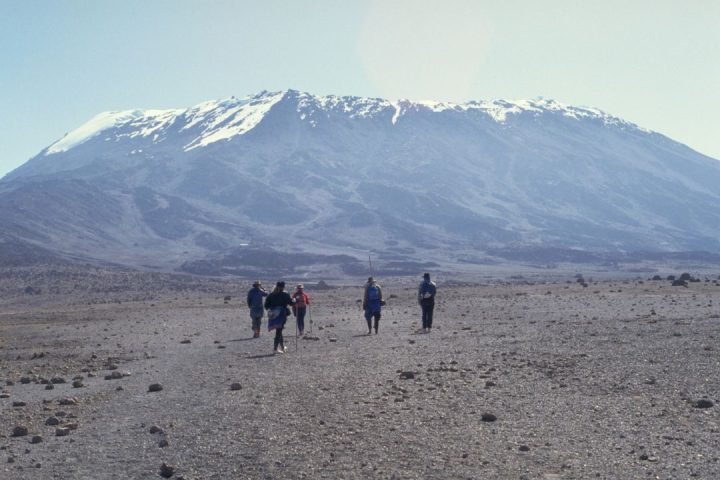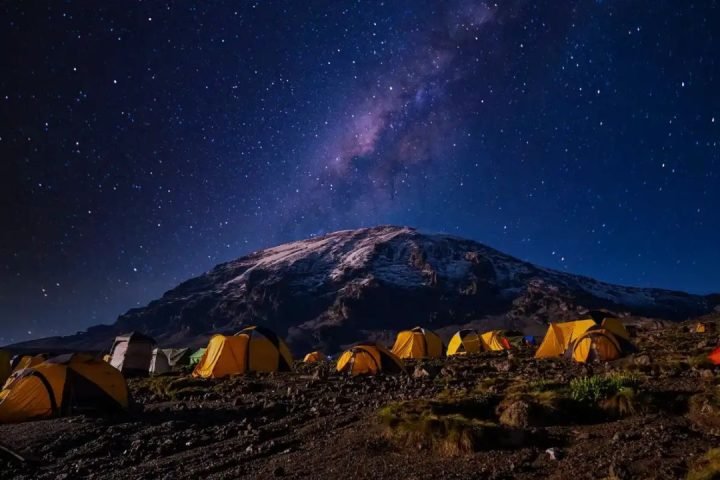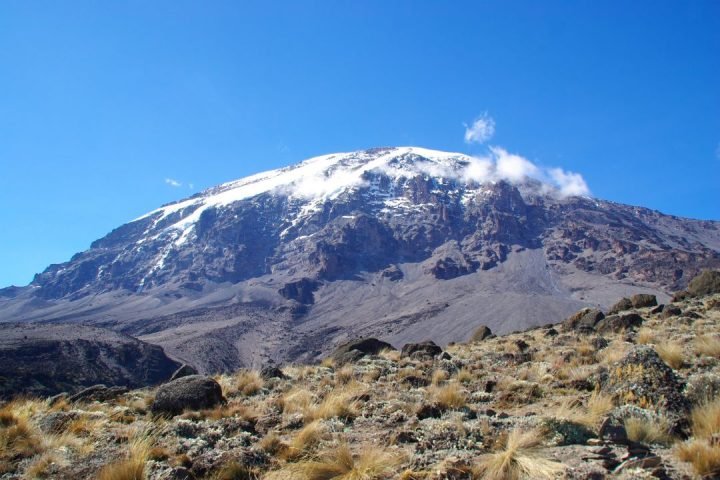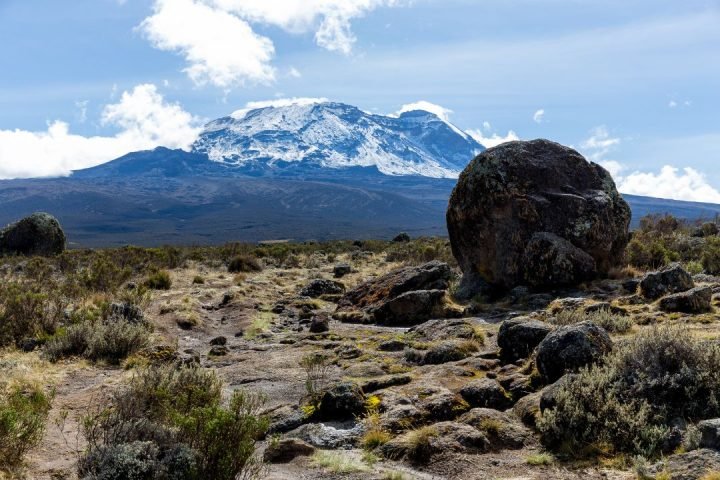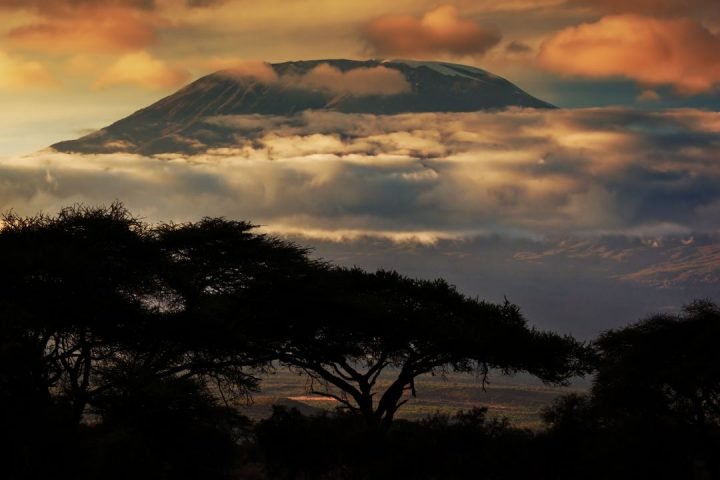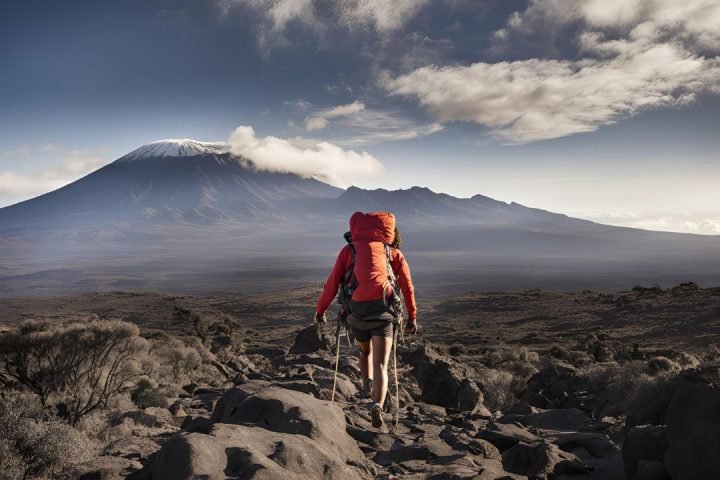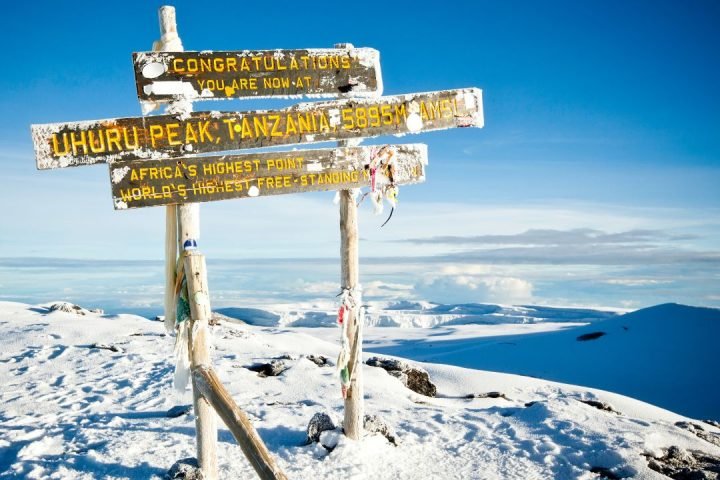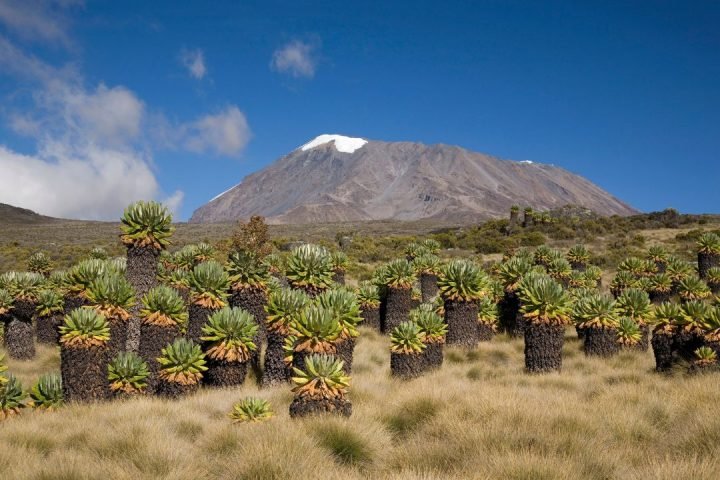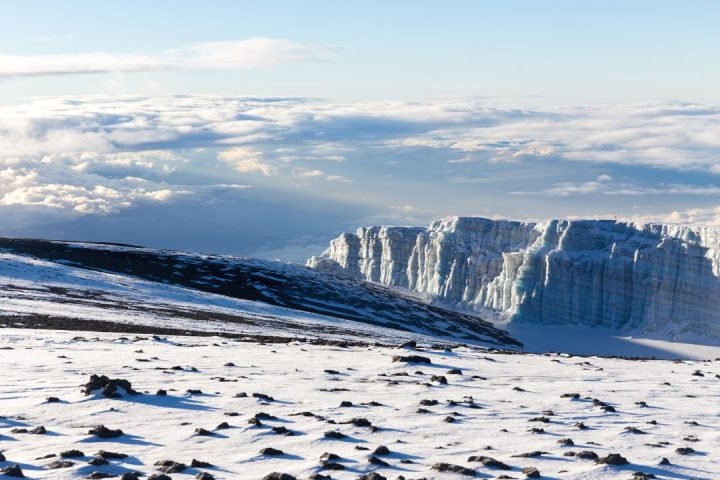7 Days Mount Kilimanjaro Trek – Lemosho Route Overview
The Lemosho Route is one of the most scenic and least-crowded paths to the summit of Mount Kilimanjaro. Beginning on the mountain’s western side, this trail offers a gradual ascent through varied landscapes — from dense rainforest and moorland to alpine desert and the glacial summit zone. Along the way, trekkers may spot wildlife on the lower slopes and enjoy breathtaking views of Mount Meru, the Shira Plateau, and the expansive African plains below.
This 7-day expedition is ideal for those seeking both adventure and serenity, allowing plenty of time for acclimatization and increasing your chances of reaching the summit. The journey is guided by experienced mountain experts and supported by skilled porters and chefs who ensure your safety, comfort, and nourishment every step of the way. Reaching Uhuru Peak (5,895 m) at sunrise is a truly unforgettable experience — a triumphant moment atop the Roof of Africa with Leen Adventures.
📒 Please Note:
This trek begins and ends in Moshi, with transfers to and from Machame Gate included, personal gear, and accommodation before or after the climb are not included, but Leen Adventures can arrange these upon request.
7 Days Mount Kilimanjaro Trek – Lemosho Route Details
7 Days Lemosho Route Highlights
7 Days Mount Kilimanjaro Lemosho Route– Detailed Itinerary
Arrival Day
Upon arrival at Kilimanjaro International Airport (JRO), you’ll be warmly welcomed by a Leen Adventures representative and transferred to your hotel in Moshi or Arusha. Spend the day relaxing, organizing your gear, and preparing for the climb ahead. In the evening, you’ll meet your mountain guide for a comprehensive trek briefing and equipment check.
Day 1: Lemosho Gate (2,100 m) – Mti Mkubwa Camp (2,785 m)
Hiking Time: 4–5 hours | Distance: 7 km | Habitat: Rainforest
After breakfast, drive to Lemosho Gate for registration and a briefing. The trek begins through dense rainforest, alive with bird songs and sightings of colobus monkeys swinging through the trees. The trail is lush and humid, gradually ascending to Mti Mkubwa (Big Tree) Camp, your first overnight stop.
Overnight at Mti Mkubwa Camp (2,785 m).
Day 2: Mti Mkubwa (2,785 m) – Shira 2 Camp (3,840 m)
Hiking Time: 7–8 hours | Distance: 16 km | Habitat: Moorland
Today’s hike takes you out of the rainforest and onto the Shira Plateau, one of the most stunning areas on Kilimanjaro. The trail climbs steadily, offering sweeping views of the plains below and Mount Meru in the distance. After crossing several small streams and ridges, you’ll reach Shira 2 Camp, where you’ll spend the night under a canopy of stars.
Overnight at Shira 2 Camp (3,840 m).
Day 3: Shira 2 (3,840 m) – Lava Tower (4,630 m) – Barranco Camp (3,976 m)
Hiking Time: 6–7 hours | Distance: 10 km | Habitat: Alpine Desert
After breakfast, continue your gradual ascent across the Shira Plateau toward the Lava Tower, a striking volcanic formation at 4,630 m. This is an important acclimatization point. After lunch near Lava Tower, descend to Barranco Camp, beautifully set at the base of the imposing Barranco Wall. The descent helps your body adjust to the altitude, enhancing acclimatization.
Day 4: Barranco Camp (3,976 m) – Karanga Camp (3,995 m)
Hiking Time: 4–5 hours | Distance: 5 km | Habitat: Alpine Desert
Today’s adventure begins with an exciting scramble up the Barranco Wall, one of the most memorable parts of the Lemosho Route. From the top, enjoy panoramic views of the Heim Glacier and the southern face of Kibo. The trail then descends through a series of ridges and valleys before arriving at Karanga Camp, where you’ll rest and prepare for the higher elevations ahead.
Day 5: Karanga Camp (3,995 m) – Barafu Camp (4,673 m)
Hiking Time: 3–4 hours | Distance: 4 km | Habitat: Alpine Desert
A short but steep climb brings you to Barafu Camp, the final base before your summit attempt. The air is thin, and temperatures drop sharply, so rest well and prepare for the early morning ascent. After an early dinner, go to bed early to conserve energy for the summit push.
Day 6: Summit Day – Barafu Camp (4,673 m) to Uhuru Peak (5,895 m) – Mweka Camp (3,100 m)
Elevation: 4,673 m → 5,895 m → 3,100 m
Distance: 17 km | Hiking Time: 12–14 hours | Habitat: Arctic to Rainforest
Wake at midnight and begin your summit attempt under a blanket of stars. The climb to Uhuru Peak is challenging, following switchback paths over loose volcanic scree. Reach the summit at sunrise and stand on Africa’s highest point—a moment of pure triumph and breathtaking beauty. After photos and celebrations, descend to Barafu Camp for brunch, then continue down to Mweka Camp for a well-deserved rest.
Day 7: Mweka Camp (3,100 m) – Mweka Gate (1,640 m) – Moshi/Arusha
Hiking Time: 3–4 hours | Distance: 10 km | Habitat: Rainforest
Descend through the vibrant rainforest toward Mweka Gate, where you’ll be presented with your official summit certificate. Your Leen Adventures driver will then transfer you back to Moshi or Arusha, where a hot shower, a celebratory meal, and well-deserved rest await.
Departure Day
After breakfast, savor your final morning in Tanzania before being transferred to Kilimanjaro International Airport (JRO) for your flight home or onward journey. You can also extend your adventure with a Tanzania safari or a relaxing Zanzibar beach escape, arranged by Leen Adventures.
🎒 Optional Gear & Rentals
Enhance your Mount Meru trekking experience with these optional gear add-ons. All equipment is subject to availability, so early booking is recommended.
💰 Tipping Guidelines
Tipping is an important tradition on Mount Meru treks. Your mountain crew—including lead guides, assistant guides, cooks, and porters—work tirelessly to support you during the climb, and tips are a meaningful way to show appreciation for their dedication and effort.
Suggested Tipping Rates:
Tips are usually handed over at the farewell ceremony at the park gate on the last day of the trek. It is best to place tips in an envelope and give them to the lead guide, who will distribute fairly among the team.
Tips should be in US Dollars (clean, undamaged notes) or Tanzanian Shillings. While tipping is not mandatory, it is customary and greatly appreciated. For larger groups, tips are often shared equally among trekkers.
Are you Up for a Challenge?
